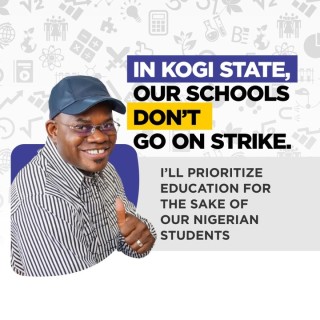ASUU Strike: No School In Kogi Has Been On Strike In The Last 5 Years

Aside from security, Nigeria’s education system is in disarray. Nigerian higher education institutions have been closed for several months as a result of strikes by the Academic Staff Union of Universities (ASUU) and other associations, with the exception of those in Kogi State. And it’s made worse by the fact that the federal government appears to have exhausted all options for dealing with this never-ending threat.
While it may not occur to some Nigerian parents that strikes have a negative impact on their young undergraduate children, experts are aware that idleness or unnecessarily long breaks from class can lead to young people engaging in unhealthy activities. Peharps, this could be a major contributor to the rising social vices and internet fraud by young people.
Strikes in Nigeria’s education system require an immediate solution, and only those who can figure it out should be the ones Nigerians are expected to focus on in the coming elections.
When you think of an uninterrupted schooling system today, Kogi State and its governor, Alhaji Yahaya Bello, immediately come to mind.
The governor was not lying when he said, “IN KOGI STATE, OUR SCHOOLS DO NOT GO ON STRIKE.” It has been confirmed that no school in the confluence state has gone on strike in the last half of a decade. It is actually no magic, the young governor ensured the students get the best out of their time in school. He employed policies and swiftly implemented them.
In Nigeria, strikes and other issues are wreaking havoc. Students’ academic performance suffers as the strike continues. Students’ reading abilities deteriorate when learning is interrupted for an extended period of time. Some students even forget what they learned in school. As a result, some students become certificate-seekers rather than knowledge-seekers, lowering productivity and producing low-quality students.
Also, if university lecturers go on strike for an extended period of time, the state and federal governments will lose billions of dollars in revenue from compensating academics for services not delivered after the strike, as well as the cost of maintaining university-owned utilities such as vehicles and generators.
In addition to the financial loss to universities, concerned education observers have noted that the strike has a negative impact on the quality of university graduates because time lost due to strikes that should have been used for delivering quality learning is not gained after the strike. This explains why there are so many half-baked graduates in this situation.
Furthermore, as a result of the strikes, some young people are losing faith in education and turning to dangerous vices that may jeopardize their future. We are in grave danger as a country as a result of this evolution.
Nigerian students have joined other organizations to persuade the public that there are other reasons besides security to give Governor Bello a chance to reform the country.
It is said that in Kogi schools, teachers are happy, students are happy, and parents are happier.
While many children in Nigeria’s 36 states and the Federal Capital Territory remained out of school, students at Kogi State University, renamed Prince Audu Abubakar University, and other schools in the state are wrapping up sessions and preparing to start another without a hitch.
Yahaya Bello is said to be enthusiastic about education. Perhaps because he is a young person or because he is well-versed in modern realities. If Nigerians truly want reformation in its education sector, Bello will certainly fix it. This again is another hope for 2023.
Source:- Thetrumpet


Share your thoughts